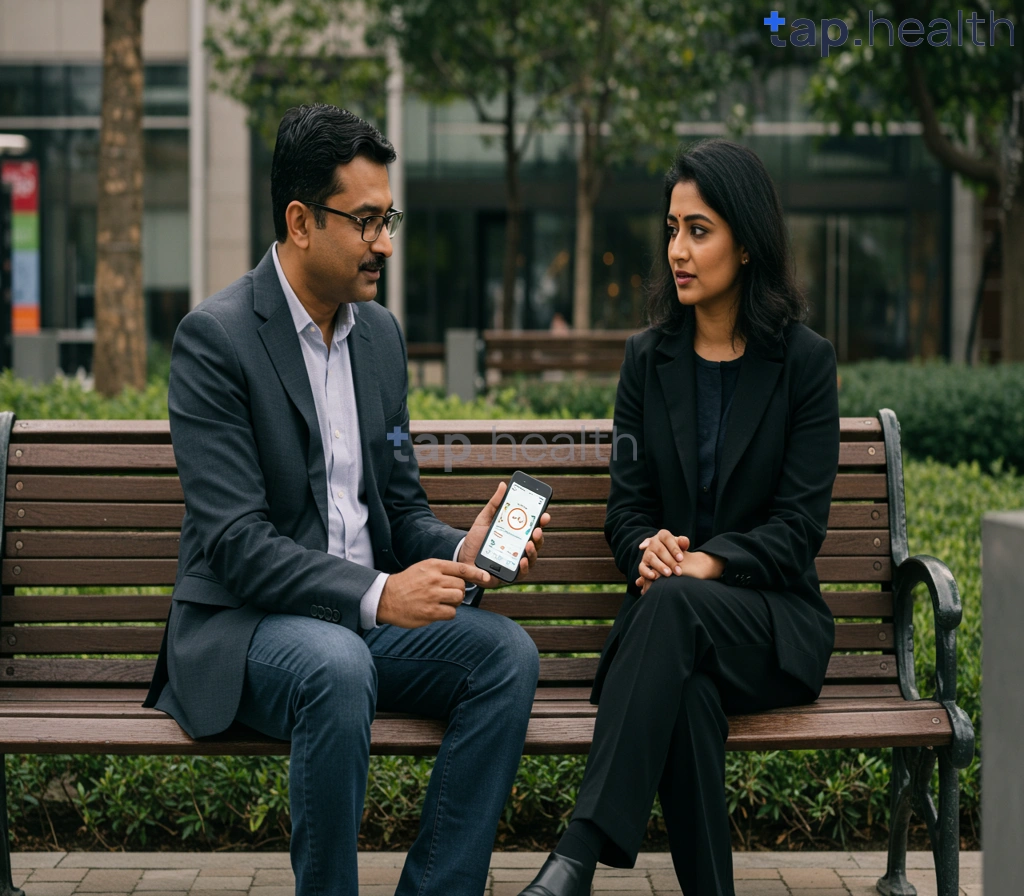Table of Contents
- Unlocking Diabetes Secrets: Your Radio Health Minute
- Diabetes and Your Health: A Radio Minute Guide
- Hidden Diabetes Risks: What Your Doctor May Not Tell You
- Improve Your Health: Simple Steps to Manage Diabetes
- Is Your Diet Affecting Your Diabetes? Find Out Now
- Frequently Asked Questions
- References
Are you tired of feeling overwhelmed by conflicting information about diabetes? Do you crave simple, actionable advice that fits into your busy life? Then you’ve come to the right place! Today, we’re diving into Unlocking a Hidden Secret About Diabetes: Your Radio Health Minute, a concise yet powerful approach to better managing your blood sugar. We’ll uncover surprisingly effective strategies that can make a real difference in your daily well-being, all in a format quick enough to fit into even the busiest schedule. Get ready to discover some game-changing insights!
Unlocking Diabetes Secrets: Your Radio Health Minute
Did you know that a staggering 50% of diabetes cases worldwide remain undiagnosed? This alarming statistic, highlighted by the International Diabetes Federation’s Diabetes Atlas, is particularly relevant in Indian and tropical countries where lifestyle changes and genetic predispositions contribute significantly to the disease’s prevalence. This means millions are living with diabetes unknowingly, putting themselves at risk of serious complications.
Understanding the Silent Threat
Many people in India and tropical regions experience symptoms subtly or mistake them for other ailments. Fatigue, increased thirst and urination, blurred vision – these aren’t always immediately linked to diabetes. Furthermore, cultural factors and limited access to healthcare can delay diagnosis. Early detection is crucial for effective management and preventing long-term health issues.
Taking Control of Your Health
Regular checkups are key to unlocking early diagnosis. Simple blood glucose tests can reveal if you’re at risk or already have the disease. In India and many tropical nations, there’s a growing focus on preventative healthcare, with numerous initiatives promoting healthy diets and regular exercise. These lifestyle modifications, combined with vigilant monitoring, can significantly reduce your risk of developing type 2 diabetes. For more in-depth strategies, check out our guide on 10 Proven Tips for Effective Diabetes Management.
Your Next Step
Don’t let undiagnosed diabetes control your life. Schedule a checkup today. Talk to your doctor about your family history, risk factors, and any concerning symptoms. Many healthcare providers in India and across tropical regions offer accessible and affordable screening programs. Taking proactive steps to manage your health is the best investment you can make. Your health is your wealth. And as you age, remember that managing diabetes requires ongoing attention. Learn more about the unique challenges and solutions in our article on Managing Diabetes as You Age: Challenges and Solutions.
Diabetes and Your Health: A Radio Minute Guide
Did you know that a significant portion of the global diabetes population, 61%, falls within the 20-64 age group? This startling statistic highlights the urgency of understanding and managing diabetes, particularly in regions like India and other tropical countries where prevalence rates are often high. This radio minute focuses on practical steps you can take to improve your health if you are living with diabetes or concerned about your risk.
Understanding Your Risk
Diabetes, especially type 2 diabetes, is often linked to lifestyle factors. In many Indian and tropical countries, dietary habits and physical activity levels play a crucial role. The prevalence of sedentary lifestyles and diets high in processed foods and refined sugars contributes significantly to the rise in diabetes cases among younger adults (ages 20-64). Data from the International Diabetes Federation underscores this concerning trend. The good news is that through conscious lifestyle changes, you can significantly reduce your risk or manage existing conditions effectively.
Practical Steps for Better Health
Small, sustainable changes can make a big difference. Prioritizing regular physical activity, even a 30-minute walk daily, can significantly improve blood sugar control. Additionally, focusing on a balanced diet rich in fruits, vegetables, and whole grains, while limiting processed foods and sugary drinks, is vital. Regular check-ups with your doctor are also essential for monitoring your blood sugar levels and adjusting your treatment plan as needed. For individuals aged 65+, regular monitoring is even more critical due to the increased susceptibility to complications associated with aging. Remember, the 39% of diabetics aged 65+ also need proactive care. For more in-depth strategies, check out our guide: 10 Proven Tips to Effectively Manage Diabetes | Simple Guide.
Taking Action Today
In India and tropical countries, access to healthcare can vary. Seek advice from local healthcare professionals and community resources to develop a personalized diabetes management plan. Don’t hesitate to reach out for support; you’re not alone in this journey. Start small, stay consistent, and prioritize your well-being. Your health is your most valuable asset. It’s also crucial to understand the link between diabetes and heart health. Learn more about protecting your heart with our guide: Protect Your Heart from Diabetes: 5 Essential Steps.
Hidden Diabetes Risks: What Your Doctor May Not Tell You
Did you know that living in hot and humid climates like those prevalent in many Indian and tropical countries can significantly impact your diabetes management? While your doctor focuses on blood sugar control, there are often overlooked risks that can dramatically worsen your condition. For example, the increased risk of dehydration in these regions can lead to complications and exacerbate existing issues.
The Deadly Combination of Smoking and Diabetes
One particularly dangerous combination is smoking and diabetes. Research shows that smokers with diabetes face a two times higher mortality rate due to cardiovascular problems compared to non-smokers with diabetes. This risk is amplified in tropical regions due to factors such as heat stress and increased susceptibility to infections. Heat stress alone can put extra strain on the cardiovascular system, making smokers with diabetes even more vulnerable.
Regional Considerations for Diabetes Management
In India and other tropical countries, access to quality healthcare, regular check-ups, and proper diabetic medications can be challenging. Add to this the prevalent lifestyle habits, such as high-carbohydrate diets and limited physical activity, and the risk factors multiply. Proper foot care becomes extremely crucial due to increased risk of infections in hot and humid environments. Making 5 Common Mistakes People Make in Managing Diabetes can further complicate matters, especially in these challenging environments.
Taking Control of Your Diabetes
Understanding these regional-specific risks is the first step towards better management. Speak to your doctor about your individual risk factors, especially if you smoke. Discuss strategies to mitigate the effects of heat and humidity, including hydration plans and lifestyle modifications. Remember, proactive management is key to a healthier and longer life, particularly in tropical climates. Seek advice on diabetes management programs available in your area to support your journey. It’s also important to dispel any myths; for instance, you should be aware that diabetes cannot be transmitted.
Improve Your Health: Simple Steps to Manage Diabetes
Did you know that up to 80% of Type 2 diabetes cases in India and other tropical countries could be prevented or significantly delayed through simple lifestyle changes? This isn’t just a statistic; it’s a powerful message of hope and empowerment. Managing diabetes effectively doesn’t require drastic overhauls, but rather a series of manageable, sustainable steps.
Prioritize a Balanced Diet
The cornerstone of diabetes management in tropical climates often involves focusing on fresh, locally sourced produce. Think plenty of leafy greens, colorful vegetables, and lean proteins. Limiting processed foods, sugary drinks, and refined carbohydrates is crucial. Incorporating traditional Indian spices known for their anti-inflammatory properties can also be beneficial. Remember, consistent, healthy eating habits are far more effective than crash diets.
Embrace Regular Physical Activity
Regular exercise is vital for blood sugar control. Given the warmer climates of India and other tropical regions, consider adjusting your workout routine to avoid the hottest parts of the day. A brisk walk, yoga, or even simple home exercises can make a significant difference. Aim for at least 30 minutes of moderate-intensity exercise most days of the week.
Manage Stress Effectively
Stress can significantly impact blood sugar levels. Incorporating stress-reducing techniques like meditation, yoga, or spending time in nature can be incredibly beneficial. Prioritizing sleep and fostering strong social connections are equally important aspects of holistic diabetes management. For more ideas on managing your condition, check out 5 Easy Lifestyle Changes to Manage Type 2 Diabetes.
Regular Check-ups are Key
Finally, regular check-ups with your doctor are non-negotiable. Early detection and consistent monitoring are essential for effective diabetes management. Don’t hesitate to seek professional guidance; your healthcare provider can help you create a personalized plan tailored to your specific needs and lifestyle. Taking these simple steps can make a world of difference in preventing or managing diabetes, leading to a healthier and happier life. Learn more about creating a personalized plan by reading Personalized Diabetes Control: Your Key to Better Health. This is a crucial step towards a healthier future.
Is Your Diet Affecting Your Diabetes? Find Out Now
Managing diabetes in Indian and tropical climates presents unique challenges. The foods readily available and traditional cooking methods can significantly impact blood sugar levels. Understanding your carbohydrate intake is key. Research suggests that most people with diabetes benefit from aiming for 45–60 grams of carbohydrates per meal, though individual needs vary significantly. This is just a guideline, and consulting a doctor or certified diabetes educator is crucial for personalized advice.
Understanding Your Carb Intake
Many common staples in Indian and tropical cuisines, such as rice, roti, and various sweet treats, are high in carbohydrates. This isn’t inherently bad, but it requires mindful portion control. For example, instead of a large serving of rice, consider incorporating more vegetables and lentils, which are lower in carbohydrates and offer valuable fiber and nutrients. Choosing whole grains over refined grains can also help regulate blood sugar levels more effectively. If you’re also looking to manage your weight, you might find our guide on How to Lose Weight with Diabetes Diet Plan helpful.
Regional Considerations & Practical Tips
The abundance of fresh fruits and vegetables in tropical regions offers a fantastic opportunity to manage diabetes effectively. However, be mindful of portion sizes, even with healthy options. Consider opting for low-glycemic index fruits such as berries and citrus fruits over high-glycemic index fruits like mangoes and bananas, which can cause rapid spikes in blood sugar.
Taking Control of Your Diabetes
Ultimately, managing diabetes effectively involves a holistic approach – including regular exercise, stress management, and consistent monitoring of your blood sugar levels. But dietary changes are paramount. Schedule a consultation with your doctor or a registered dietitian to create a personalized diabetes management plan tailored to your specific needs and the readily available foods in your region. They can help you navigate the complexities of your diet and ensure you’re making informed choices to live a healthier, happier life. Understanding the nuances of different dietary approaches can also be beneficial. For a detailed comparison, check out our article on Low-Carb vs. Moderate-Carb Diets for Diabetes: What Works Best?
Frequently Asked Questions on Unlocking a Hidden Secret About Diabetes: Your Radio Health Minute
Q1. What is the main concern regarding diabetes highlighted in the articles?
A high percentage of people have undiagnosed diabetes, particularly in places like India and other tropical areas. This emphasizes the importance of regular health checks for early detection.
Q2. How can I prevent or manage type 2 diabetes?
Maintaining a healthy lifestyle is key. This includes eating a balanced diet, exercising regularly, managing stress effectively, and consistently monitoring your blood sugar levels. A healthcare professional can create a personalized plan for you.
Q3. What are some specific lifestyle considerations in hot and humid climates?
The heat and humidity, as well as the types of food readily available, can all impact diabetes management. It’s especially important to stay hydrated and make healthy food choices.
Q4. Does smoking affect diabetes and its management?
Yes, smoking significantly increases the risk of death for people with diabetes, especially in warm climates. Quitting smoking is crucial for better health outcomes.
Q5. Where can I get personalized advice for managing my diabetes?
It is essential to consult a healthcare professional. They can assess your individual needs and create a personalized plan to help you manage your diabetes effectively and address any misconceptions you may have about its transmission and treatment.
References
- A Practical Guide to Integrated Type 2 Diabetes Care: https://www.hse.ie/eng/services/list/2/primarycare/east-coast-diabetes-service/management-of-type-2-diabetes/diabetes-and-pregnancy/icgp-guide-to-integrated-type-2.pdf
- What is Diabetes: https://www.medschool.lsuhsc.edu/genetics/docs/DIABETES.pdf




